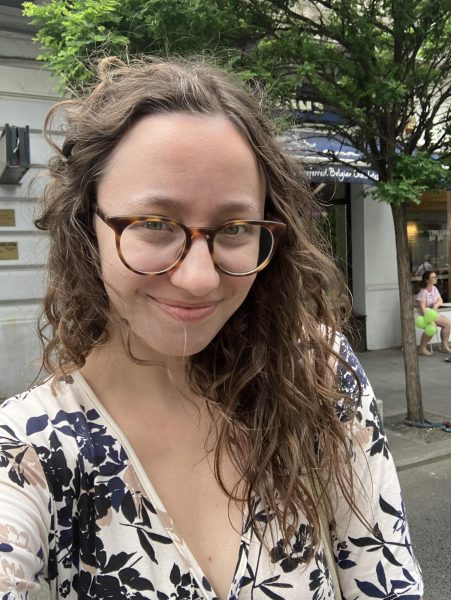I was going to write an article about my thoughts on Carleton removing the mask mandate. The main idea was going to be that I personally wouldn’t be wearing my mask any less, but that I understand why Carleton ended the mask mandate.
Then I tested positive for COVID-19.
I nearly didn’t get a COVID-19 test. I wasn’t a close contact, although a few of my friends were. There was a long line, and I’m embarrassed to say that I was tempted not to. I had no reason to think I had been exposed, and I didn’t want to overreact to a cold; after all, when I had gotten a test because I had symptoms last term, it turned out to just be a cold.
But I did get a test. I told my friend that I couldn’t meet her for lunch and I got a Green2Go box to eat in my room.
I was on the phone with my mom, ironically telling her that I didn’t think I had COVID-19 but had gotten a test anyway because I wanted to be cautious—and that’s when I got a call from the contact tracing team. I hung up the phone (sorry, Mom) and learned I had COVID-19.
The symptoms, at least the mild ones, were immediate, but the realization was not; it wasn’t until an hour later, after I had talked to the contact tracing team, that I accepted that I had COVID-19 and how much it would affect the end of my winter term. I joined class on Zoom from my room while I waited to find out where I would quarantine; I started texting my friends so they would know who their close contact was. Then I got a call and I learned where I would be quarantining even though I really didn’t have any preference.
When I hung up the phone, I sat on my bed and I cried.
That feels scary to put in a newspaper. I’ve had conversations with friends about crying, but this is different. There’s a part of me that doesn’t want to admit it for some reason, but I’m choosing to ignore that feeling. I don’t know how high-risk I am for COVID-19, and I’ve never really known. I don’t know what this means for when I can go home, I’m sad to be missing my last few classes this trimester, and I’m overwhelmed and scared. So I got off the phone and cried. That feels important to mention because I believe it’s important not to minimize the effects of COVID-19, especially in a community where so many people are young and seemingly healthy and unlikely to get very sick from COVID-19.
And now I’m in a hotel, sleeping on a pull-out couch—there’s only one bed, I have a roommate and a lot of people are getting COVID-19—and trying to reschedule my flight home because I’ll still be quarantining on the day that I was supposed to leave.
I’m glad I got a COVID-19 test, that much is obvious. I’m lucky that I don’t feel worse right now, although I certainly don’t feel great. And there’s a part of me that’s amazed that I didn’t get COVID-19 earlier, given that I spent the beginning of the pandemic in New York City, where a study at Mount Sinai Hospital showed that nearly 20% of the city had been infected with COVID-19. That study was conducted a year prior to November 2021, and since then, even more New York City residents have gotten COVID-19. I am lucky to have not gotten it before now, and I’m lucky that I have two vaccines and a booster dose to protect me from getting even sicker.
But there’s a part of me that’s upset by that. I made it two years into the pandemic without getting COVID-19—my high school closed due to COVID-19 exactly two years ago, on March 11, 2020—so why now? I’ve been pretty careful, at least I like to think I have. I’ve worn my mask nearly all of the time when I’ve been in public spaces in the last week. But now, as COVID-19 cases at Carleton are rising, I have to ask whether that would’ve been the case if the mask mandate were still in place.
I understand that if I don’t wear a mask while walking down the hall to brush my teeth, it doesn’t really make a difference given that I take it off to brush my teeth in a shared bathroom anyway. I understand that it feels slightly ridiculous to wear a mask while getting food in the dining halls but not while eating at non–socially distant tables. Those little instances of mask-wearing may not make a difference in terms of COVID-19 transmission, but sitting in this hotel room with a splitting headache, trying to figure out how I’m supposed to write an essay feeling like this, I have to reconsider the importance of those little things.
The pandemic isn’t over. Logically, I knew that last week. I believe ending the mask mandate creates a false sense of security and encourages the idea that COVID-19 is over and people on campus are safer than they actually are. And I would like to remind students, particularly those who believe they’ll be fine if they get COVID-19, that they may not be wrong. Maybe they will be fine. But not everyone will be, and complacency is dangerous.
I think it’s good that the mask mandate has been reintroduced, but that should’ve happened days ago, before 55 people tested positive in half a week. It shouldn’t have taken this many people getting COVID-19 on campus for it to be taken seriously.










